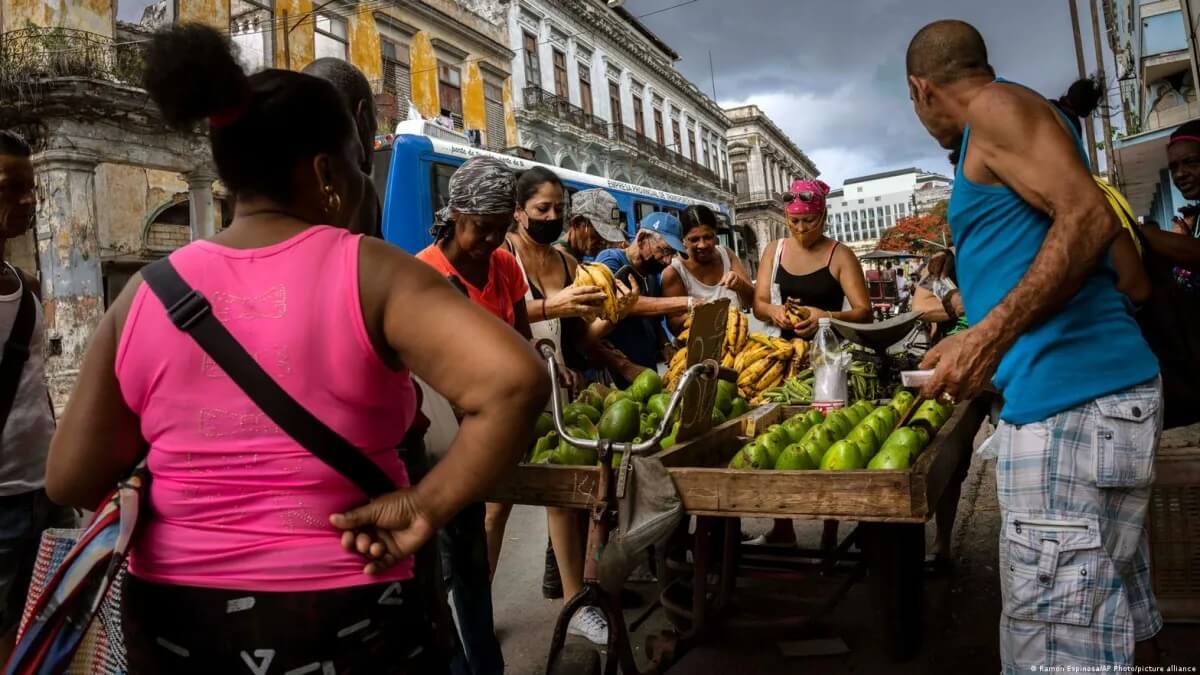In a bid to tackle the country’s worst economic crisis in over 30 years, the Cuban government on Monday allowed “selective” foreign investments in domestic wholesale and retail trade. In particular, the historical shift is aimed at addressing food, fuel, and medicinal shortages.
Economy Minister Alejandro Gil said the liberalisation measures will “expand and diversify” the supply of critical consumer goods by attracting foreign investment in sectors that have been monopolised by the state since 1959. Gil cautioned, however, that overseas investments will remain under strong “state regulation.”
To this end, Deputy Trade Minister Ana González noted that foreign companies will now be able to fully own Cuban wholesalers and retailers will be able to enter into public-private ventures. Like Gil, though, she reiterated that Cuba would only “selectively” permit foreign funds that fulfil the country’s socialist goals and contribute to lower prices.
En medio de las fuertes restricciones que enfrentamos, la inversión extranjera en el comercio mayorista y minorista, con regulación del Estado, permitirá ampliar y diversificar la oferta a la población y contribuirá a la recuperación de la industria nacional.@MEP_CUBA pic.twitter.com/Uz8pqlVtSY
— Alejandro Gil Fernández (@AlejandroGilF) August 16, 2022
In a statement, González said that she hoped that the measures would have an “immediate impact on shortages and contribute to improving offers in stores.” She simultaneously clarified that the government “has not renounced and will not renounce the monopoly of foreign trade,” noting that the Ministry will continue to maintain a regulatory oversight on imports and exports.
This was echoed by Trade Minister Betsy Díaz Velázquez, who reaffirmed that a “state market has to prevail” and that the government would only authorise foreign investors who conform “to the objectives that we have set.”
📣 Nuevas medidas sobre la participación de la inversión extranjera en el comercio minorista.
— Betsy Díaz Velázquez (@BetsyDazVelzqu2) August 16, 2022
📌 Se elimina el carácter excepcional. No será un comercio minorista abierto, pero tampoco es restrictivo, como hasta ahora. #ComercioCuba pic.twitter.com/Lq643zZ5QE
Velázquez revealed that the focus of these investments will be food and hygiene products, green energy technologies, and businesses selling supplies and equipment. She also pledged to “prioritise” the companies that have been in Cuba over the years and have “understood the situation that the country is going through.”
Monday’s announcement has been construed as an acknowledgement by the Cuban government that excessive centralisation and state monopolisation have created the current economic crisis. Its state-owned firms have failed to acquire foreign currency and raw materials, which, combined with the devastating impact of the COVID19 pandemic, has triggered critical shortages, creating a black market and leading inflation rates to touch 70% last year.
As food crisis deepens, #Cuba will allow some foreign investment in wholesaling and retail but not surprisingly, the state will decide who will be allowed to invest and how. https://t.co/03KrRnr9rP
— Nora Gámez Torres (@ngameztorres) August 16, 2022
The island nation has also borne the brunt of the United States’ (US) sanctions regime since 1962, which has restricted its revenue and remittance flow for decades and was only recently eased by President Joe Biden’s administration in June.
This confluence of factors has caused immense economic hardship, evident in the surging numbers of migrants fleeing to the US. Simmering discontent has even triggered repeated anti-government protests in recent months.
Against this backdrop, Cuban authorities have taken a series of measures to adjust the country’s state-led economic model.
In August, the Economy Ministry revealed plans to instate a foreign exchange market in a bid to tackle “the main problem of the Cuban economy, which is the lack of foreign currency.” In a “fundamental step,” Gil announced that the country will start purchasing foreign currencies, including the US dollar, to bring about greater economic integration with the global economy.
👉El sector del comercio también tiene necesidad de inversión extranjera. 📈
— Betsy Díaz Velázquez (@BetsyDazVelzqu2) August 16, 2022
👉Es una oportunidad que conlleva una altísima responsabilidad para que tenga el resultado inmediato que espera la población.#ComercioCuba #CubaViveYTrabaja#CubaViveYTrabaja pic.twitter.com/20WWRP79Oe
Havana has also invited individual entrepreneurs and small and medium businesses to establish private ventures, which has now been extended to larger businesses.
More significantly, the government also undertook a major overhaul of the country’s dual currency system last year by devaluing the local Cuban peso and unifying it with the Convertible Cuban Peso (CUC) in an effort to boost exports and reduce import dependency. The move also hopes to revive the purchasing power parity of the Cuban peso in the long run.
However, these measures brought little respite to the ailing economy, as the inflation rate continued to hover around 70%, with a low growth rate of 2% at the end of 2021.
Monday’s announcement has been met with scepticism from locals, who are still not permitted to establish retail stores or own wholesale units. Condemning this “internal blockade,” some citizens have voiced frustrations that “We Cubans do not have the right to develop our country; foreigners do.”
In fact, Cuban economist Omar Everleny denounced the measures as “too little, too late,” expressing concern that they “were full of words such as ‘exceptions, control, conditions,’ as if they (Cuban government) did not understand how serious the crisis is.”

